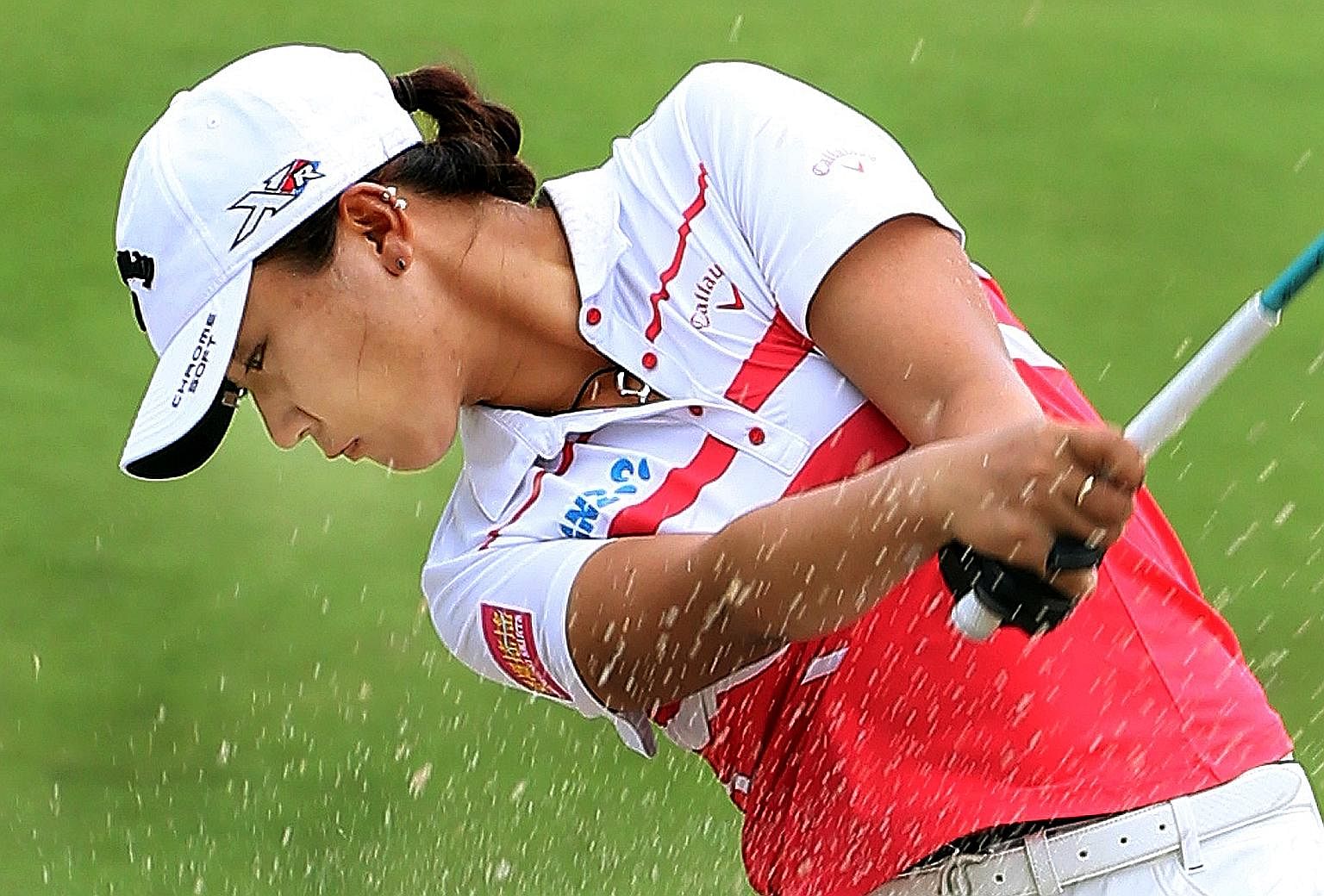To arrive at the most exalted and desired position in sport is evidently priceless because it does not come with a prize or a parade. At best, in women's golf, your caddie wears a bib which has written on its back your position in your world.
No. 1.
To be the best in your sport, as Cristie Kerr, who lived it once and now simply explains it, is pure "satisfaction". No one can erase your name from the record books and no one is accorded such a unique introduction. As Lydia Ko noted yesterday, it felt "really good" when the starter announced her as No. 1.
No. 1 is a cumulation of extraordinary journeys made, it is Everest climbed and it is permissible to look down on the world. "You get treated special," said former No. 1 Park In Bee, "and get a lot of respect from players and fans." It is a childhood dream come true, unless of course you are Ko and get there - in golfing terms - at the childlike age of 17. Maybe one day we will have to find a number higher than 1 for her.
A tennis player I know has No. 1 as part of his e-mail address, an act of understandable vanity for no other appellation in modern life, not Don nor Doctor, not Saint nor Sir, is more appealing than this number. No. 1 consumes the fan and obsesses the athlete, or as Tseng Ya-ni, golf's leading lady for 109 weeks, said: "I dreamed about it since I was 12 and after 10 years I became No. 1."
This fascination with No. 1, of anything, is newer than we think, a product of a culture that is preoccupied with rating movies, grading facelifts, sorting restaurants and sifting songs. Even Beethoven's works have been reduced to a Top 10.

In sport, too, official rankings are somewhat recent. Grand Slam tennis is as old as Black Beauty which was published in 1877, yet the ATP rankings began in 1973. Women have played competitive golf since Babe Didrikson launched drives in the 1940s with the quote "you've got to loosen your girdle and let it rip", yet its rankings started in 2006.
Rankings simplify life for us, they give sport an order, though we could still argue about a system where numbers spat out by a cold machine are considered the best way to interpret art. Still, they help in separating talent which suits the media for we tend to conveniently swoon only over the best. If you're world No. 145, well, nice to have known you. It also provides us with a never-ending story as we tut-tut every week over who has fallen and who is yet to rise. Sometimes athletes are not humans, only numbers.
Yet No. 1 as an idea has always existed, for kids will often say they want to be "the best in the world" - even if it is only at the hula hoop. Yet only the single-minded will pursue it into adulthood and only the singular will never let go of it. Squash's Nicol David held it for 112 months, chess' Garry Kasparov supposedly for 255 months and wheelchair tennis' Esther Vergeer for 668 weeks.
Everyone wears No. 1 differently. Roger Federer, 302 weeks as lightly as a silk cape, Tiger Woods, 683 weeks with unblinking intimidation. To be the best is to be adored by sponsors, greeted effusively by bank managers and sometimes tripped up by language. As the charming Japanese Ai Miyazato, No. 1 in 2010, said, "because I had to speak in English, it was harder for me". But she never demurred for as she explained, "you can't say no because you're representing the LPGA, being the No. 1".
No. 1 is privilege and responsibility, where athletes are pandered to and yet pursued. Said Ko, "everyone wants to catch up to you"; added In Bee, "there's so much attention on whatever you do". Cameras record every misstep and microphones exaggerate every word. It is a strange place where a spotlight shines and yet, said Ya-ni, "it is lonely".
Kerr thinks she put "too much pressure" on herself. Ya-ni revealed that "24 hours I was thinking golf... trying to do everything perfect". Pressure is a fog rising from within and gathering from outside. "Every week everybody is looking at you," said Ya-ni, now No. 39. "If you're outside the top 10 (in an event) people ask, what's wrong with Ya-ni?"
No. 1s have to be role models and ruthless, smilers and scalp-takers, every day taking a high-stakes, high-rise tight-rope walk as they balance their posing for pictures with their practice. Part of being the best is trying not to forget amid the hoopla what made them the best.
And yet for all its stress, for all the demands, for all the deifying and crucifying of stars on Twitter, No. 1 will always be the chosen destination. It is what Ya-ni dreams of again and why people play, for the privilege of this pressure, for their hands shaking over a shot, for this moment when they lead the world.
And, yes, also for the dinners. As Ya-ni laughed, when she was No. 1, on many nights in Taiwan, in many restaurants, no bill came her way.
•Additional reporting by Nicholas Tan


